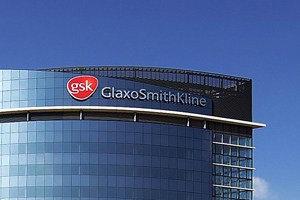 GlaxoSmithKline has dismissed the head of its Chinese R&D unit after carrying out a probe into allegations of data fabrication in a 2010 scientific paper on multiple sclerosis (MS) published in Nature Medicine.
GlaxoSmithKline has dismissed the head of its Chinese R&D unit after carrying out a probe into allegations of data fabrication in a 2010 scientific paper on multiple sclerosis (MS) published in Nature Medicine.
In a statement, GSK said it had been tipped off about the data fabrication some weeks ago, and after looking into the allegations has “established that certain data in the paper were indeed misrepresented”. The company has recommended to Nature Medicine that the article should be retracted.
Jingwu Zhang (who sometimes uses the Zang spelling of his surname), who served as a senior vice president in GSK’s Shanghai R&D unit, has been let go, while another scientist has resigned and three others have been placed on “administrative leave” while the company continues its investigation, according to the pharma company.
Meanwhile Nature Medicine has also publicised the case in a blog written by its chief news editor Roxanne Khamsi, who notes that the journal will now be contacting all the authors of the paper to secure consent for retraction, in accordance with its editorial policy.
The paper in question examined the role of specialised T cells in MS and was from early-stage, preclinical research that did not directly involve patients. A total of 18 scientists are listed as authors of the study.
It claimed to have found evidence that differences in receptor for the cytokine interleukin-7 (IL-7) could place some individuals at elevated risk for developing MS. However, Khamsi notes in her blog that data said to come from cells taken from MS patients was either recorded as coming from healthy donor cells, or could not be documented at all.
Zhang et al’s work focused on the effect of IL-7 on a subset of T lymphocytes known as T helper 17 (TH17) cells, but other research groups have suggested that the cytokine is more likely to be exerting effects via the TH1 subgroup.
Prior to joining GSK in June 2007, Harvard-educated Zhang was the founding director of the Shanghai-based Institute of Health Sciences having previously served as director of the Shanghai Insttute of Immunology.
The case draws attention once again to the issue of data falsification in the pharma industry, which arguably reached a low point in 2010 when US clinician Scott Reuben pleaded guilty to faking dozens of research studies, including trials of Pfizer’s Celebrex (celecoxib) and Merck & Co’s Vioxx (rofecoxib).
It is hard to gauge how commonly data fabrication occurs, but an analysis of scientific practices published in 2009 by the journal PLOS One found that – across all disciplines surveyed – 2 per cent of scientists admitted to falsifying data themselves while 14 per cent said they believed their peers had done so.




